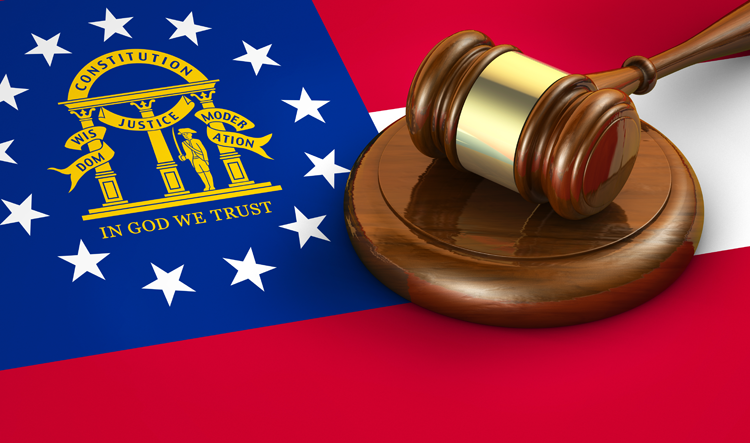Community resident has standing to sue over planned removal of Confederate statue, top Georgia court says

Image from Shutterstock.
A community resident can sue over plans to remove a Confederate statue from her county, but groups without ties to the community don’t have standing, the Georgia Supreme Court ruled last week.
The Georgia Supreme Court ruled in lawsuits alleging that county commissioners showed an intent to violate Georgia law when they voted to remove the Confederate statues.
The Legal Profession Blog noted the Oct. 25 decision and published highlights.
The state supreme court considered whether the Georgia Constitution requires plaintiffs to show a “cognizable injury” to sue in Georgia courts that is separate from the statutory authorization to sue. The court answered in the affirmative, holding that plaintiffs “must have a cognizable injury that can be redressed by a judicial decision.”
The plaintiffs included private citizen T. Davis Humphries and Sons of Confederate Veterans groups. They cited a law that bars removal of monuments honoring military service, including those honoring Confederate soldiers. Humphries sued over a vote to remove the statue in Newton County, Georgia, while the groups sued over votes in Newton and Henry counties in Georgia.
The Georgia Supreme Court said the kind of cognizable injury required in suits for violation of a public duty—including the duty regarding the Confederate statues—could be a generalized grievance.
The injury “need not always be individualized; sometimes it can be a generalized grievance shared by community members, especially other residents, taxpayers, voters or citizens,” the state supreme court said.
The standard is less exacting than the standing requirement for plaintiffs challenging a law’s constitutionality, which requires an “actual, individualized injury,” according to the opinion.
Applying the cognizable-injury framework, the Georgia Supreme Court said, Humphries had standing to sue for an injunction against removal of the statue in her county. She couldn’t seek damages at this time, however, because the statue had not yet been removed.
The Sons of Confederate Veterans groups didn’t have standing, the state supreme court said. The groups had not alleged that they had associational standing or that their members lived in the affected counties.
“Because the Sons of Confederate Veterans groups have not alleged anything resembling community stakeholder status and have alleged no other cognizable injury, they do not have standing,” the Georgia Supreme Court said.
Write a letter to the editor, share a story tip or update, or report an error.



